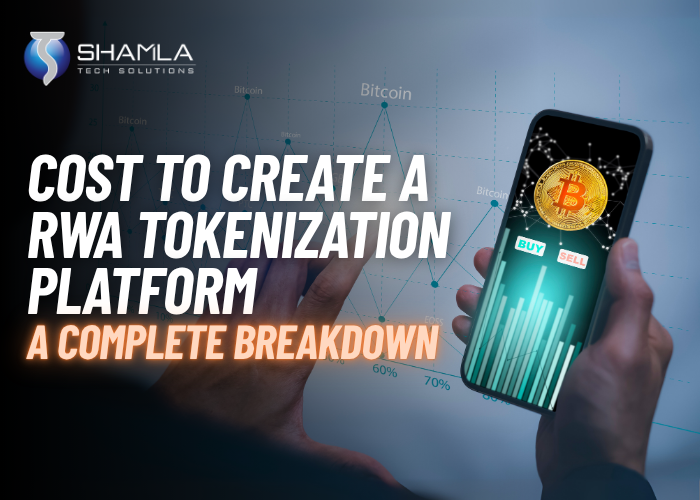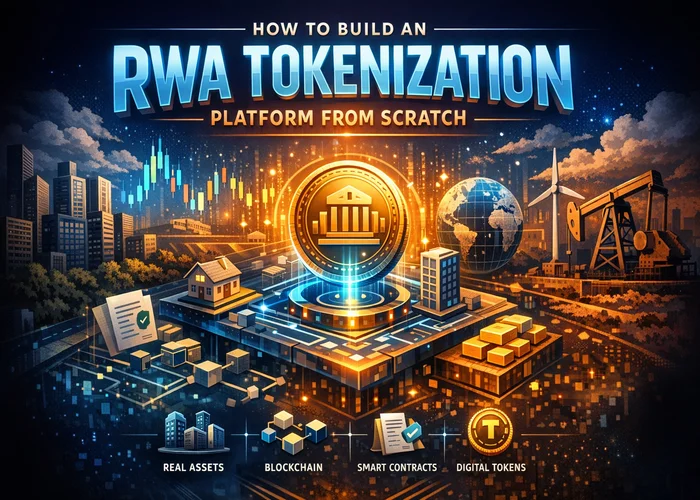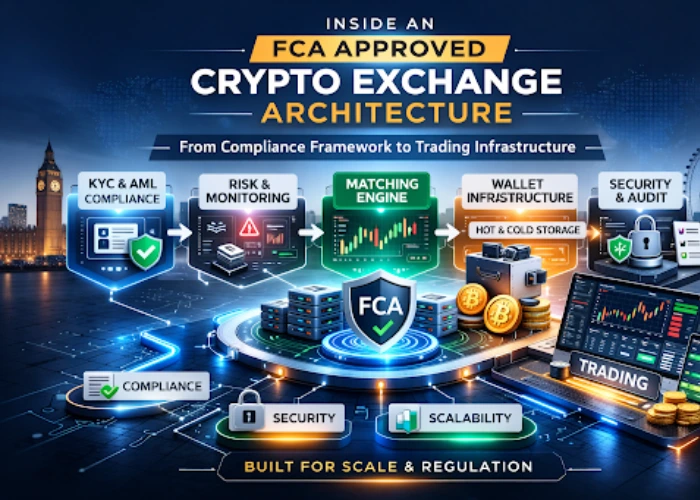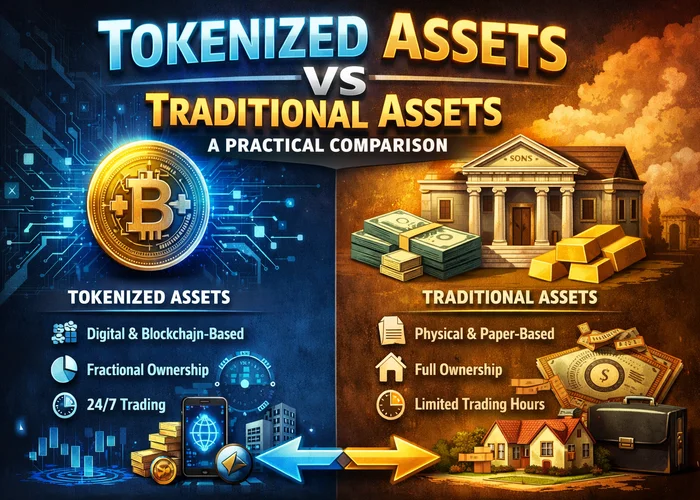Step-by-Step Process to Create Your Own Digital Currency
With blockchain technology becoming more accessible in 2025, more founders, creators, and enterprises are asking, “How can I create my own digital currency to bring my ideas to life?” Whether for business ecosystems, loyalty platforms, DeFi products, or virtual experiences, the process of creating digital currency is now more structured and easier to execute than ever before.
If you’re thinking seriously about how to begin, here’s a comprehensive guide to help you navigate every stage of digital currency creation.
1. Define Your Purpose and Goals
Anyone wondering, “Where do I start if I want to create my own digital currency?” must begin by answering a core question: what will the currency be used for?
Will it power an in-app marketplace? Serve as a governance tool? Enable peer-to-peer transactions? Your purpose determines the type of digital asset you’ll need—be it a utility token, security token, stablecoin, or governance token. This clarity will guide every decision moving forward.
2. Choose the Right Blockchain
For those asking, “What blockchain should I use to create my own digital currency?”, platform selection is critical. Ethereum remains a top choice for flexibility and smart contract support, while Binance Smart Chain, Solana, and Polygon offer speed and lower fees.
Choosing the right blockchain affects everything from transaction speed to gas fees, wallet support, and scalability. If your goal is long-term adoption, the foundation must be strong.
3. Design the Tokenomics Structure
Before getting into development, it’s essential to consider the economics behind your token. Many entrepreneurs stop here to ask, “How should I structure the value if I create my own digital currency?”
Tokenomics includes:
- Total supply
- Circulation strategy
- Inflation or burn mechanics
- Reward systems
- Utility within the ecosystem
A well-designed model creates real demand, maintains token stability, and encourages ongoing user participation.
4. Smart Contract Development
At this point, the actual technical process of creating digital currency begins. Smart contracts act as the self-executing rules that power your token’s logic—managing transfers, minting, staking, and more.
For non-developers who ask, “Can I still create my own digital currency without coding?”, the answer lies in using digital currency creation services. These providers bring in blockchain experts to write, test, and deploy secure smart contracts aligned with your goals.
5. Testing and Smart Contract Audits
Security is non-negotiable. Anyone considering whether now is the right time to create my own digital currency must also ask, “How do I ensure my token is secure and trustworthy?”
Before going live, smart contracts must be rigorously tested on testnets and audited by third-party security firms. This ensures your token doesn’t contain vulnerabilities that could be exploited post-launch.
6. Token Deployment and Network Integration
7. Wallet & Exchange Compatibility
8. Launch Strategy and Community Building
Creating a currency is only half the journey. Many project leads now ask, “After I create my own digital currency, how do I ensure people adopt and use it?”
Success lies in marketing, education, and community engagement. Launch campaigns, airdrops, incentive programs, and content strategies will build momentum and attract users who bring real utility to your ecosystem
9. Governance, Scalability & Roadmap
Once your token gains traction, you’ll need a long-term plan. Many innovators begin thinking, “How do I evolve after I create my own digital currency?”
Key considerations include:
- Community voting mechanisms (DAO integration)
- Cross-chain expansion
- Partnerships and platform upgrades
- Continuous innovation
Maintaining relevance is just as important as launch. Projects that adapt and scale thrive in the competitive crypto space.
Why Digital Currency Creation Services Matter
For those without technical experience, the logical next question becomes, “Should I work with a team when I create my own digital currency?”
The answer is yes—especially if you aim for a secure, scalable, and regulation-ready launch. Professional digital currency creation services offer:
- End-to-end development
- Smart contract security
- Blockchain consulting
- Exchange and wallet integrations
- Post-launch support
Working with experienced teams ensures that your vision is executed without compromise and aligned with best practices.
Whether you’re a startup founder, enterprise innovator, or ecosystem builder, taking the step to create your own digital currency can unlock powerful new opportunities. And with the right strategy, tools, and support, your token can become more than just code—it can become a core driver of your platform’s future.
How Much Does It Cost to Create a Digital Currency?
- As more innovators explore blockchain opportunities, a common question arises: “How much will it cost to create my own digital currency in 2025?”. The cost of creating a digital currency can vary significantly depending on several key factors. One of the most important considerations is the type of currency you’re building—whether it’s a simple utility token or a more complex native coin with its own blockchain.
- Another major factor is the choice of blockchain platform. Some blockchains offer lower development and deployment fees, while others may provide advanced features at a higher cost. The complexity of smart contract development, the level of customization, and whether third-party audits are required will also impact the overall budget.
- In addition, the cost can increase based on whether you need legal support, wallet integrations, user dashboards, or post-launch marketing. Projects with regulatory requirements may need specialized legal consultation, which adds to the development timeline and expense.
- Ultimately, the total cost depends on the project’s scope, technical needs, and long-term vision. Working with an experienced team can help streamline the process, ensure security, and deliver a digital currency that’s both functional and scalable.
Can I Create a Digital Currency Without Coding?
- One of the most common questions among aspiring founders and entrepreneurs in 2025 is: “Can I create my own digital currency even if I don’t know how to code?” The answer is yes. With the evolution of blockchain infrastructure and the rise of digital currency creation services, it’s now easier than ever to bring your vision to life without writing a single line of code.
- Several no-code and low-code platforms now allow individuals to create digital currency through intuitive dashboards and smart contract templates. These platforms handle complex backend functions like token deployment, smart contract integration, and network configuration.
- For those exploring how to create a cryptocurrency coin without technical expertise, working with a crypto coin development company is a smart move. These experts offer cryptocurrency creation services tailored to your goals—whether you’re launching a custom crypto coin, a utility token, or exploring how to create a cryptocurrency on Ethereum.
- Ultimately, creating digital currency today is no longer limited to developers. With the right guidance and tools, anyone can successfully start a cryptocurrency coin and enter the decentralized economy.
Essential Tools and Technologies for Digital Currency Creation
As more businesses and developers explore how to create digital currency, understanding the underlying tools and technologies becomes crucial. Whether you’re planning to start a cryptocurrency coin or launch a custom crypto coin for your ecosystem, the right tech stack ensures scalability, security, and usability from day one.
- Blockchain Platforms
The foundation of any successful digital currency creation lies in choosing the right blockchain. Popular platforms include:
- Ethereum – Ideal for those exploring how to create a cryptocurrency on Ethereum, using ERC-20 or ERC-721 standards.
- Binance Smart Chain (BSC) – Favored for lower fees and quick deployments for those looking to create your own token.
- Solana, Polygon, Avalanche – Great for high-performance environments requiring fast throughput and low latency.
These platforms are widely used by any crypto coin development company to help clients create a cryptocurrency coin suited for DeFi, gaming, and enterprise needs.
- Smart Contract Frameworks
Smart contracts are the backbone of creating digital currency. Developers use:
- Solidity (for Ethereum/BSC/Polygon)
- Rust (for Solana)
- Vyper (an alternative to Solidity)
Tools like Remix IDE, Truffle, and Hardhat enable efficient contract writing, testing, and deployment—crucial for those who want to build a cryptocurrency coin from scratch.
- Token Standards & Protocols
Selecting the appropriate token standard ensures compatibility across wallets, exchanges, and dApps. Common standards include:
- ERC-20 / BEP-20 – For fungible tokens
- ERC-721 / ERC-1155 – For NFTs or hybrid use
- SPL – Used on Solana
These standards are integral to cryptocurrency token development and are often recommended by experts offering cryptocurrency creation services.
- Wallet & Exchange Integration Tools
To ensure your users can access and use your digital asset, integration with leading wallets (MetaMask, Trust Wallet, Phantom) and exchanges (Uniswap, PancakeSwap) is necessary. These tools support real-time trading and asset storage.
For those aiming to create a cryptocurrency coin with wide usability, compatibility with existing DeFi infrastructure is essential.
- Audit & Security Tools
Security is critical during digital currency creation. Tools like:
- Slither
- MythX
- CertiK (3rd-party)
are used to audit smart contracts, identify vulnerabilities, and ensure compliance. Any reputable crypto coin development company will prioritize this before mainnet deployment.
- Launchpads & Token Deployment Tools
To start a cryptocurrency coin successfully, launchpads like PinkSale, DxSale, or custom-built DEX tools are used for pre-sales, liquidity locking, and decentralized token launches.
- Monitoring & Analytics
Block explorers like Etherscan, BscScan, and Solscan help track performance, verify contract integrity, and build transparency after token launch.
Why Technical Infrastructure Matters
Whether you’re planning to create digital currency as a simple utility token or a fully functional governance coin, using the right stack is critical. A qualified cryptocurrency coin development partner can provide tailored digital currency creation services that align with your project goals.
These tools and technologies form the foundation of every secure, scalable, and innovative token project—empowering creators to create a cryptocurrency coin that performs in real-world conditions.
Can I Create a Digital Currency Without Coding?
- One of the most common questions among aspiring founders and entrepreneurs in 2025 is: “Can I create my own digital currency even if I don’t know how to code?” The answer is yes. With the evolution of blockchain infrastructure and the rise of digital currency creation services, it’s now easier than ever to bring your vision to life without writing a single line of code.
- Several no-code and low-code platforms now allow individuals to create digital currency through intuitive dashboards and smart contract templates. These platforms handle complex backend functions like token deployment, smart contract integration, and network configuration.
- For those exploring how to create a cryptocurrency coin without technical expertise, working with a crypto coin development company is a smart move. These experts offer cryptocurrency creation services tailored to your goals—whether you’re launching a custom crypto coin, a utility token, or exploring how to create a cryptocurrency on Ethereum.
- Ultimately, creating digital currency today is no longer limited to developers. With the right guidance and tools, anyone can successfully start a cryptocurrency coin and enter the decentralized economy.
Are you wondering how to create my own digital currency in 2025? In today’s fast-paced digital economy, the urge to create your own digital currency is no longer a complex ambition. Entrepreneurs, businesses, and creators are actively exploring ways to create digital currency to unlock new revenue models and enhance user engagement. If questions like, how can I create my own digital currency to power a unique ecosystem, have ever crossed your mind, you’re already on the right path toward digital innovation. Today, more founders and enterprises are exploring ways to create digital currency that fuels their platforms—be it for gaming, decentralized applications, or fintech solutions.
For anyone thinking, “What steps should I take to create my own digital currency effectively?”, the process is now more accessible than ever. With reliable digital currency creation services, even complex blockchain tasks become manageable. From concept to launch, a professional Crypto Coin Development Company can help build a cryptocurrency coin and ensure its secure deployment in the market.
And for those still wondering, “Is it practical to create my own digital currency without technical expertise?”—the answer lies in choosing the right partners and tools. Creating digital currency tailored to your project’s needs can open doors to global transactions, decentralized economies, and lasting brand value
Why Create a Digital Currency Now?
As we step deeper into 2025, the digital economy is evolving at an unprecedented pace. More entrepreneurs, startups, and enterprises are asking, “Should I create my own digital currency now?” The answer is a resounding yes. Whether for decentralized finance, NFTs, gaming, or fintech ecosystems, creating digital currency today is a smart, future-ready move.
- Massive Market Adoption in 2025
With the global surge in blockchain and crypto adoption, many innovators are now asking, “Is this the right time to create my own digital currency?” The momentum of 2025 makes it the ideal moment to act. With the rise of Web3 platforms, tokenized assets, and digital payments, businesses that choose to create digital currency today gain early-mover advantage in competitive sectors.
- Total Control Over Your Ecosystem
A key driver behind the question, “Why should I create my own digital currency?” is the unmatched level of control. From governance and tokenomics to utility and branding, digital currency creation allows you to build an ecosystem that truly belongs to you. Whether you’re looking to create your own token or build a cryptocurrency coin, custom control is key.
- Unlock New Revenue Streams
If you’re thinking, “How can I create my own digital currency to generate income?”, consider the wide range of monetization options: transaction fees, staking, yield farming, and exclusive access to services. Through smart cryptocurrency creation services, businesses can capitalize on these models seamlessly.
- Simplified Development with Expert Services
Previously, technical complexity was a barrier for many asking, “Can I really create my own digital currency?” In 2025, digital currency creation services have simplified every step. Whether you want to start a cryptocurrency coin from scratch or create a cryptocurrency on Ethereum, expert development partners make the journey easier.
- Enhanced Brand Engagement
When brands create digital currency, they open up innovative ways to interact with users—through loyalty rewards, gated content, voting mechanisms, and more. Creating a custom crypto coin tailored to your brand drives long-term engagement and user retention.
- Build Decentralized Financial Systems
For those considering decentralized finance or exchange platforms, it’s common to ask, “Can I create my own digital currency for a DeFi protocol or DEX?” The answer is yes—2025 brings robust infrastructure and advanced development tools that support such ambitions. Projects now benefit from advanced blockchain tools, modular smart contracts, and robust security.
- Low Entry Barrier and High Scalability
Another frequent thought is, “Isn’t it too complex to create my own digital currency today?” In truth, the barriers to entry are significantly lower than in previous years, making it more accessible than ever. With prebuilt frameworks, cross-chain support, and global communities, even small-scale founders can create a cryptocurrency coin that scales quickly.
- Stay Ahead of Industry Trends
Industries from logistics to entertainment are integrating blockchain. And for anyone still contemplating, “Will I fall behind if I delay the decision to create my own digital currency?”—the simple reality is this: those who act now will stay ahead in innovation, compliance, and global relevance. Whether you’re planning to build a cryptocurrency coin or launch utility tokens, 2025 is the year to act.
With the global shift toward decentralization and digital ownership, asking “Should I create my own digital currency in 2025?” is not just relevant—it’s essential. Thanks to powerful cryptocurrency creation services, launching your currency has never been more accessible. Whether the goal is to start a cryptocurrency coin, strengthen brand identity, or drive blockchain innovation, the question arises—“Is now the right time to create my own digital currency?” With the opportunities 2025 brings, there’s no better moment to take that step and shape the future of finance.
Digital Currency vs Cryptocurrency Coin: What’s the Difference?
While the terms digital currency and cryptocurrency coin are often used interchangeably, they are not exactly the same. For anyone asking, “What should I know before I create my own digital currency?”, understanding the difference between a digital currency and a cryptocurrency coin is a critical first step.
Digital Currency
Digital currency refers to any form of money that exists only in digital form. It can be centralized (like a central bank digital currency or CBDC) or decentralized. Not all digital currencies run on blockchain.
Cryptocurrency Coin
A cryptocurrency coin is a type of digital currency that is built on its own blockchain network. Coins like Bitcoin, Ethereum, or BNB have their own underlying infrastructure and can be used for transactions, staking, governance, or more.
Feature | Digital Currency | Cryptocurrency Coin |
Definition | A general term for any currency in digital form | A blockchain-based currency with its own independent network |
Blockchain Usage | May or may not be built on blockchain | Always built on a blockchain |
Centralization | Can be centralized (e.g., CBDCs, digital wallets) | Fully decentralized in most cases |
Examples | Digital Rupee, PayPal balance, e-wallet credits | Bitcoin, Ethereum, coins you build a cryptocurrency coin from |
Control | Managed by a central authority or institution | Controlled by users or project owners through consensus |
Use Cases | Digital banking, payment systems, remittances | DeFi apps, smart contracts, decentralized governance |
Transparency | May lack public transparency | Fully transparent and traceable via public ledger |
Security | Security depends on the provider | Enhanced security via cryptography and consensus algorithms |
Technology | Not always open-source or interoperable | Built on open-source blockchain frameworks |
Regulatory Compliance | Designed to follow strict legal regulations | May be permissionless, with optional regulatory layers |
Creation Method | Built via proprietary platforms or enterprise tools | Created through cryptocurrency coin development or smart contracts |
Development Complexity | Lower for centralized models | Higher for full blockchain coin development |
Monetization Potential | Limited to platform utility or currency conversion | Offers revenue from staking, trading, DApps, and more |
Flexibility & Customization | Limited in design and utility | Highly customizable through custom cryptocurrency coin models |
Ideal For | Governments, banks, payment platforms | Startups, blockchain apps, DeFi, tokenized ecosystems |
Creation Services Available | Yes, through digital currency creation services | Yes, via expert cryptocurrency creation services |
Getting Started | Requires enterprise-level integrations | Easy to begin when you start a cryptocurrency coin with experts |
Community Support | Minimal or institution-driven | Strong global developer and user community |
Anyone wondering, Should I create my own digital currency or build a cryptocurrency coin instead?” will find that understanding these differences is a vital part of making the right decision.
What Are the Main Types of Digital Currencies You Can Create in 2025?
One of the most searched questions today is: “What type of digital currency can I create for my business or platform?” Anyone exploring digital innovation in 2025 may find themselves asking, “What types of assets should I consider if I want to create my own digital currency?”, it’s important to understand the different categories available. Each type serves a unique purpose and aligns with specific goals—from governance and payments to trading, gaming, and decentralized finance.
- Utility Tokens
For those evaluating platform features or in-app functionality, the question often becomes, “Would a utility token be the right choice if I plan to create my own digital currency?”. Utility tokens are among the most popular choices when people decide to create digital currency. These tokens offer access to specific services within a platform, such as gaming rewards, in-app purchases, or special membership benefits.
Many startups create your own token on established blockchains like Ethereum or BNB Chain to enable fast deployment and easier adoption. If you’re wondering how to create a cryptocurrency on Ethereum, utility tokens are often the starting point.
- Security Tokens
When regulatory compliance and fundraising are top priorities, it’s common to hear, “Should I create my own digital currency in the form of a security token?”. These are backed by real-world assets like equity, real estate, or commodities and require close adherence to regional financial laws.
Security tokens are often built using specialized crypto token creation services to ensure compliance from the start.
- Stablecoins
Thinking, “Can I create my own digital currency that maintains a stable value?”—then stablecoins are your answer. These digital currencies are pegged to fiat currencies like USD or INR, offering price stability and global usability.
Businesses that create digital currency in the form of stablecoins benefit from faster payments and trusted transactions, especially in cross-border scenarios.
- Governance Tokens
Governance tokens give holders the right to vote on future decisions within a decentralized project. If you’re exploring how to start a cryptocurrency coin that empowers your community, governance tokens are essential.
These are commonly used in DAOs and DeFi protocols. When paired with custom cryptocurrency coin functionality, they help shape decentralized ecosystems effectively.
- Native Cryptocurrency Coins
Those who want to launch a fully independent blockchain often ask, “How can I build a cryptocurrency coin with my own network?” The answer lies in native coins. These require developing a standalone blockchain through expert cryptocurrency coin development or with the help of a professional crypto token development company.
This is ideal for those wanting to build a cryptocurrency coin with full control over consensus mechanisms, gas fees, and architecture.
- DEX Coins
For founders asking, “How do I create my own digital currency for a decentralized exchange?”, DEX coins are purpose-built for trading platforms. They are designed to fuel liquidity, reduce transaction fees, and support platform governance.
If your vision includes launching a trading environment, it’s worth exploring how to create a DEX coin from scratch as part of your digital strategy.
Choosing the Right Path for Digital Currency Creation
Each type of digital currency supports a different goal. Anyone mapping out a project should know that asking the right questions early—especially around how to create my own digital currency—can define the future success of the entire ecosystem.
The ecosystem it will serve
- The blockchain platform you’ll use
- Your preferred level of control and decentralization
- Monetization methods and compliance needs
With advanced digital currency creation services, you can go from concept to launch with expert support. Whether you aim to build a cryptocurrency coin or simply explore how to create your own crypto coin in 2025, there’s a solution for every idea.
Top Use Cases of Custom Digital Currencies
As blockchain technology continues to evolve, more businesses and communities are exploring how to create digital currency tailored to specific needs. Whether you’re looking to create a cryptocurrency coin for internal operations, public utility, or community engagement, the use cases are expanding rapidly.
Here are the top real-world applications where custom digital currency creation is driving innovation in 2025:
- In-App and Gaming Currencies
Custom tokens are widely used in mobile apps, gaming platforms, and virtual worlds. Developers often create digital currency to reward users, enable in-game purchases, and build self-sustaining virtual economies.
- Loyalty and Rewards Programs
Businesses are now choosing to create my own digital currency to replace traditional points-based systems. Custom tokens offer better flexibility, security, and traceability for loyalty rewards across multiple channels.
- Decentralized Finance (DeFi)
Many founders ask, “Can I create my own digital currency for DeFi protocols?” The answer is yes. Custom coins enable staking, lending, governance, and yield farming features in decentralized platforms.
- Community and DAO Governance
Creating a token gives communities the ability to vote, fund projects, and manage resources transparently. This is especially common when startups or collectives build a cryptocurrency coin to support decentralized decision-making.
- E-Commerce and Microtransactions
Brands can start a cryptocurrency coin for e-commerce platforms to lower transaction fees, enable global payments, and introduce unique incentives or cashback models.
- Tokenization of Assets
Real-world assets like real estate, stocks, or commodities are now being tokenized. Businesses use digital currency creation services to represent these assets on-chain and offer fractional ownership.
- Event and Ticketing Systems
Organizers are turning to custom crypto coin models to sell, verify, and resell event tickets, reducing fraud and improving traceability through blockchain.
- Education and Learning Platforms
Online academies create your own token to incentivize student progress, certify achievements, and gamify the learning experience through digital rewards.
From gaming and fintech to community-led projects and asset-backed systems, the range of digital currency creation applications continues to grow. Partnering with a reliable crypto coin development company ensures that your token is built for the right use case—with scalability, compliance, and performance in mind.
Build a Digital Currency That Delivers Real-World Impact with Shamla Tech
At Shamla Tech, we go beyond token launches—we empower businesses, entrepreneurs, and visionaries to create digital currency solutions that deliver measurable value. Our process is tailored for forward-thinking creators who often ask, “What’s the smartest way to create my own digital currency that’s built for real-world utility and long-term growth?”. We combine strategic planning, regulatory foresight, and advanced blockchain engineering to answer that question with real, scalable solutions.
Whether you’re interested in creating digital currency for your business ecosystem, community rewards, or a decentralized platform, we offer full-spectrum digital currency creation services tailored to your unique goals. From smart contract development and blockchain integration to tokenomics design and post-launch support, we handle it all with precision.
Our team understands that the decision to create my own digital currency is more than just a trend—it’s a transformational move. That’s why we build secure, scalable solutions that align with your long-term vision.
With Shamla Tech, digital currency creation becomes a guided journey—from ideation to launch, and beyond. If you’re ready to bring real value to your ecosystem through blockchain, partner with us to create digital currency that drives growth and innovation.











